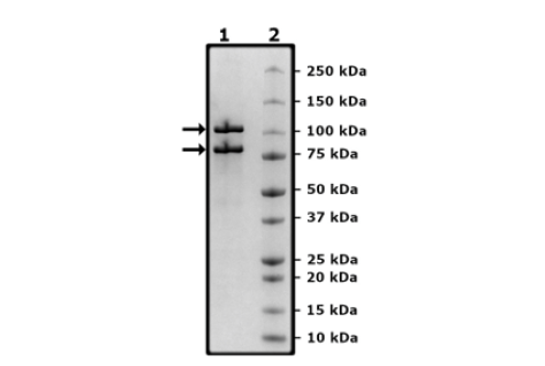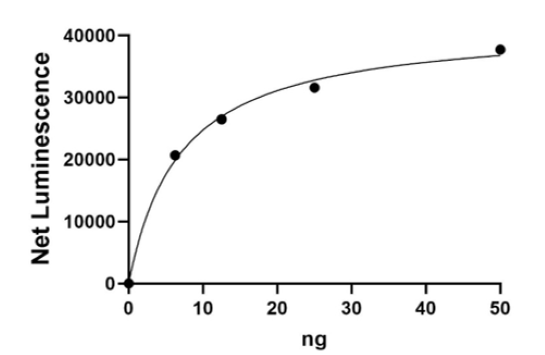PI3 Kinase p110α (H1047L)/p85α, FLAG-Tag Recombinant
Recombinant human PI3 Kinase complex of p110α, with an H1047L mutation, and p85α variant 1. Subunit p110α encompasses amino acids 2-1068(end), and an N-terminal FLAG tag. Subunit p85α encompasses amino acids 1-724(end). The two constructs were expressed together, and the complex was affinity purified.
≥90%
Aqueous buffer solution
25 mM Tris-HCl, pH 8.0, 69 mM NaCl, 1.35 mM KCl, 0.025% Tween-20, 50% glycerol, and 3 mM DTT
PI3 (phosphoinositide 3) kinases, or phosphatidylinositol 3 kinases, are a family of proteins that can be subdivided into four classes: I, II, III and IV. Class I is involved in converting PI (4, 5) P2 (phosphatidylinositol (4, 5)-biphosphate) into PI (3, 4, 5) P3 (phosphatidylinositol (3, 4, 5)-triphosphate) when activated by tyrosine kinase receptors and G-protein coupled receptors. They are heterodimeric proteins with a regulatory and a catalytic subunit. The heterodimer between p110 (catalytic subunit) and p85 (regulatory subunit) belongs to class IA. P110 and p85 have three variants each. P110α is ubiquitously expressed, and p85α is the most abundant variant of p85. Class I PI3K participates in cell signaling, mostly via the activation of PKB (protein kinase B) and the PI3K/AKT/mTOR pathway. Dysfunction of these kinases impacts cell growth and differentiation, and mutations in p110α have been linked to cancer. At least three isoform-specific inhibitors are approved by FDA for the treatment of lymphoma and leukemia. Further studies will help identify more selective inhibitors with a good tolerance that can bypass the development of drug resistance.



